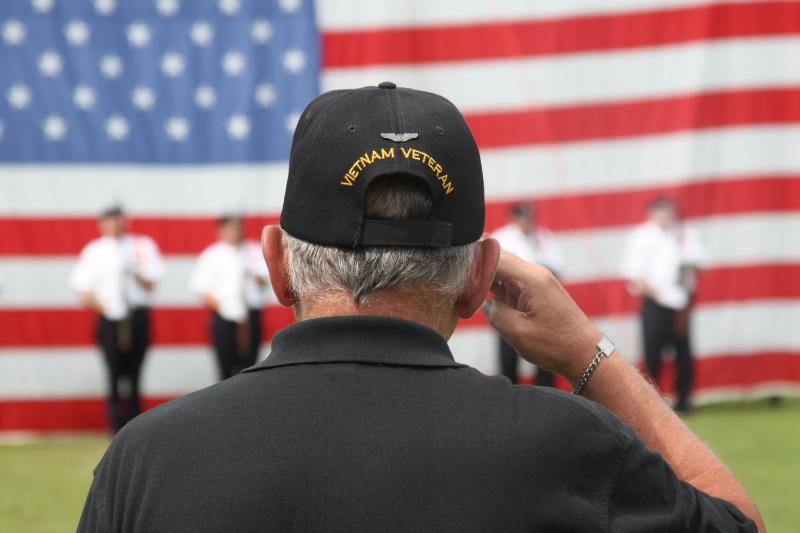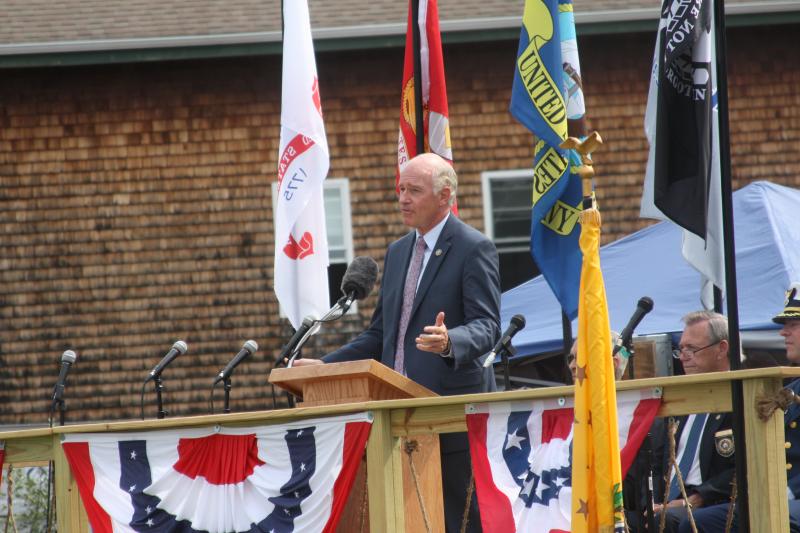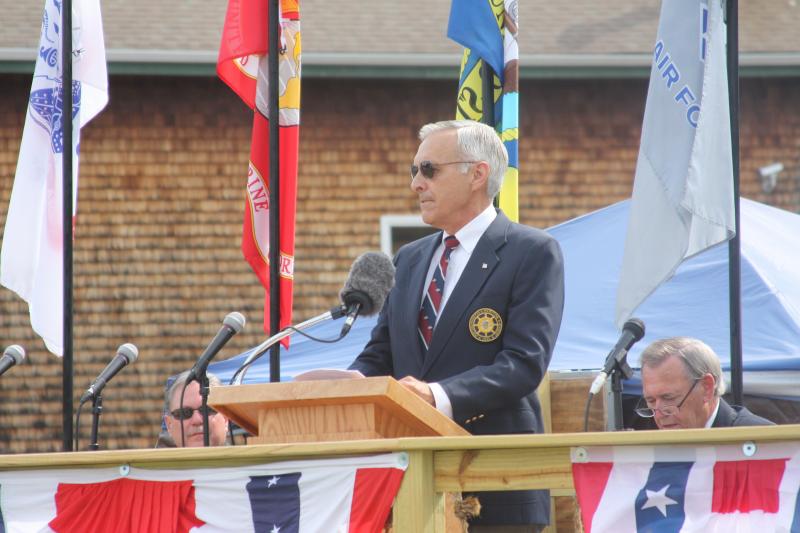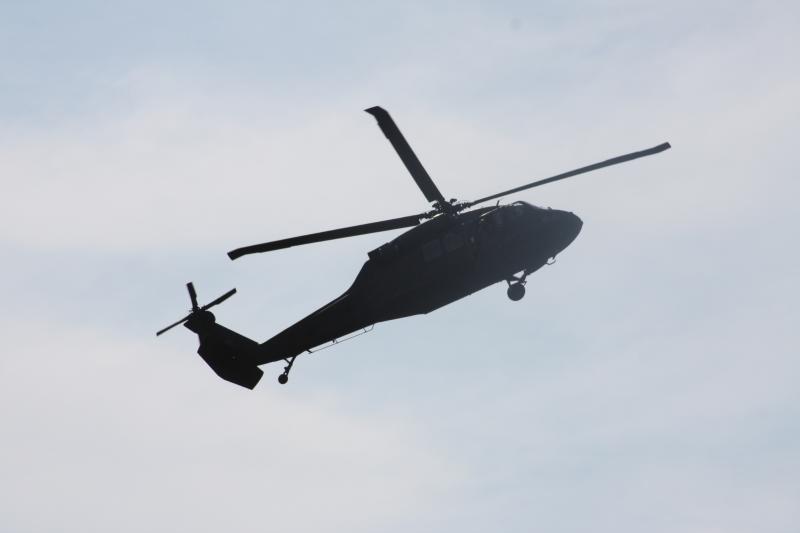National division noted at The Moving Wall's closing ceremony
The Vietnam War divided the U.S. in ways that’s hard to describe to those who didn't experience that tumultuous time. However, Rear Admiral Rick Gurnon, former president of the Massachusetts Maritime Academy, tried on Monday.
“For anyone younger than 45, this seems like a history lesson. For my generation, the war was a machete cutting through families and friends, wounding all with its hate,” said Gurnon.
He spoke at The Moving Wall’s closing ceremony, held at Andersson Track across from Wareham Middle School. The Moving Wall, a half-size replica of the Vietnam Veterans Memorial in Washington, D.C., was on display from Aug. 17 - 21.
During part of the war, Gurnon attended the United States Naval Academy in Annapolis, Maryland. While he didn’t serve, he noted the chaos overseas impacted everyone at home.
As a cadet, Gurnon posted the names former cadets who died in combat in the academy’s memorial hall “and more names came every day.”
Noting that today the country is divided over President Donald Trump's actions, “back then it was worse,” said Gurnon. “It wasn’t the hat on your head,” he said referring to the red “Make America Great Again” caps, “but the length of your hair.”
Long-haired citizens protested the war, at odds with those supporting the U.S.’s policy of stopping the spread of Communism in Southeast Asia, said Gurnon. Those who sported short hair cuts, such as Gurnon, were seen as supporting the war effort.
“I got frequent taunts of ‘baby killer,’ but it was nothing compared to the vitriol and animosity that our returning vets received, many who were just teenagers,” said Gurnon.
He went on to say the treatment veterans received was deplorable.
“Back in the 1960s and 1970s, soldiers, sailors and airmen were lepers in our communities,” said Gurnon.
Looking back, he said those attitudes time were captured in music. He cited two songs, “The Ballad of the Green Berets” by Sgt. Barry Sadler and “I-Feel-Like-I’m-Fixin’-to-Die” by Country Joe and the Fish.
Sadler’s song praised those fighting as Gurnon recited: “Fighting soldiers from the sky, Fearless men who jump and die, Men who mean just what they say, The brave men of the Green Beret.”
From the second song, Gurnon quoted: “Well, come on all of you, big strong men, Uncle Sam needs your help again…Well there ain’t no time to wonder why, Whoopee! We’re all gonna die.”
Another protest song, “Ohio” by Crosby, Stills, Nash & Young, also garnered a mention from Gurnon. The song memorialized the shooting at Kent State on May 4, 1970 when National Guardsmen killed four student war protestors and wounded nine.
It wasn’t until the Vietnam Veterans Memorial opened in 1982 that many felt a national healing process started. Gurnon noted that the wall itself sparked outrage when it was first built.
“It was called a gash, a wound,” said Gurnon.
He added that James Webb, who went on to become a Virginian senator, said: “I never in my wildest dreams imagined such a nihilistic slab of stone.”
The criticism was short lived. Gurnon noted that the Vietnam Veterans Memorial soon became one of the most visited and revered monuments in Washington, D.C.
By bringing The Moving Wall to Wareham, Gurnon credited the many people and groups who worked over the past year to make that a reality. U.S. Congressman Bill Keating (D-Massachusetts), agreed.
Keating noted that when veterans were returning home, protesters, “conflated their thoughts on the war with those who were serving us.”
He said, “The Moving Wall doesn’t come to every city and town in the U.S. It being here is a terrific statement for the community.”
Chaplain for the Wareham-New Bedford Lodge of Elks, Rev. Rick Duffy, ended the ceremony with a call for peace.
“Thank you for the privilege of us being able to share this time together,” he said. “Hear our prayer for peace in our world, that we may not have to build a Wall like this again.”
